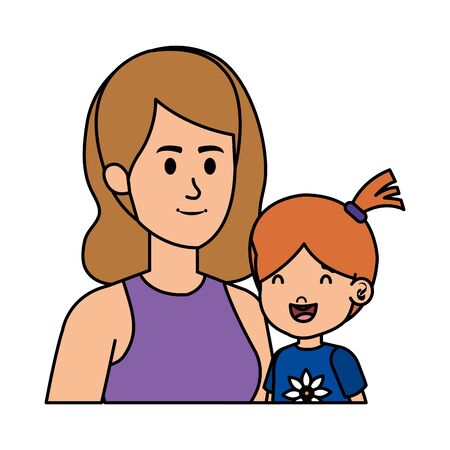Understanding Gentle Parenting
What Is Gentle Parenting?
Gentle parenting is an approach to raising children that focuses on empathy, respect, and understanding. Instead of using punishment or rewards to control behavior, gentle parenting encourages parents to build strong relationships with their children, communicate openly, and guide them through their emotions and actions. This method is rooted in the belief that children learn best when they feel safe, loved, and understood.
Core Values of Gentle Parenting
| Core Value | Description |
|---|---|
| Empathy | Understanding and sharing a childs feelings; responding with care rather than anger. |
| Respect | Treating children as individuals with their own thoughts and opinions. |
| Boundaries | Setting consistent but kind limits; helping toddlers understand rules without fear. |
| Positive Communication | Using words and actions that encourage connection instead of conflict. |
How Gentle Parenting Differs from Traditional American Discipline Methods
In many American households, traditional discipline often means using time-outs, consequences, or even spanking to correct unwanted behavior. While these methods aim to teach right from wrong, they sometimes rely on fear or shame. Gentle parenting takes a different path by focusing on teaching skills like problem-solving and self-regulation. Here’s a quick comparison:
| Gentle Parenting | Traditional Discipline | |
|---|---|---|
| Main Focus | Understanding & guiding behavior | Punishing misbehavior |
| Communication Style | Open & empathetic dialogue | Direct commands or criticism |
| Role of Emotions | Acknowledges & supports feelings | Might ignore or suppress emotions |
| Discipline Tools | Modeling, explaining, redirecting | Time-outs, loss of privileges, spanking |
| Long-term Goal | Building trust & self-control | Obedience & immediate compliance |
The Science Behind Gentle Parenting Approaches
Research shows that gentle parenting methods can lead to better emotional health for children. Kids raised with empathy and respect are often more confident, cooperative, and resilient. Scientists have found that when parents focus on understanding their child’s needs and emotions—rather than simply stopping unwanted behaviors—children are more likely to develop self-control and strong social skills as they grow.
2. The Science Behind Gentle Discipline
Gentle parenting is built on understanding, empathy, and respect for a child’s feelings and development. But what does science say about these gentle approaches to toddler discipline? Recent research in psychology and child development offers valuable insights into why gentle discipline works and how it benefits toddlers.
Understanding Gentle Discipline
Gentle discipline focuses on guiding children rather than punishing them. It encourages parents to set clear boundaries while supporting a child’s emotional needs. This approach helps toddlers learn from their mistakes without fear, shame, or harsh consequences.
What Research Shows About Gentle Parenting
Studies have found several positive outcomes for families who use gentle parenting techniques. Here’s a summary of key findings:
| Research Finding | Impact on Toddlers |
|---|---|
| Secure Attachment | Toddlers feel safe and understood, leading to stronger parent-child bonds. |
| Emotional Regulation | Children learn to manage big feelings more effectively with supportive guidance. |
| Better Social Skills | Toddlers show more empathy, cooperation, and ability to resolve conflicts with others. |
| Lower Stress Levels | Kids experience less anxiety and are better able to handle everyday challenges. |
The Role of Brain Development
Neuroscience tells us that a toddler’s brain is rapidly developing, especially the areas that control emotions and self-control. When parents respond gently—by naming emotions, offering comfort, and setting limits calmly—they help build strong neural connections that support healthy emotional growth.
Key Takeaways from Science
- Consistency matters: Gentle discipline works best when parents are calm and consistent in their responses.
- Empathy shapes behavior: Children are more likely to cooperate when they feel understood and respected.
- Praise progress: Positive reinforcement encourages toddlers to repeat good behaviors without fear of failure.
This growing body of research highlights the real benefits of gentle parenting techniques for raising confident, emotionally healthy toddlers.

3. Practical Gentle Strategies for Toddlers
Setting Boundaries with Kindness
Gentle parenting doesn’t mean a lack of boundaries—instead, it means setting clear, consistent limits with respect and empathy. Research shows that toddlers thrive when they know what to expect. In American families, gentle boundary-setting is often about explaining rules in simple language and following through calmly. For example, instead of saying “Don’t touch!” you might say, “We keep our hands to ourselves so everyone stays safe.” This approach supports healthy development and helps toddlers understand the “why” behind rules.
Evidence-Based Boundary Strategies
| Strategy | How to Apply with Toddlers | Scientific Support |
|---|---|---|
| Consistent Routines | Create predictable daily schedules (mealtimes, bedtimes) | Reduces anxiety and improves cooperation (American Academy of Pediatrics) |
| Positive Reinforcement | Praise good behavior (“You shared your toy! That was kind.”) | Boosts self-esteem and encourages repetition (CDC) |
| Clear, Simple Language | Use short phrases (“Feet stay on the floor” instead of “Don’t climb”) | Aids understanding at toddler age (Zero to Three Foundation) |
Teaching Empathy Through Everyday Moments
Toddlers are learning how their actions affect others. Gentle parenting highlights modeling empathy—showing kindness, labeling feelings, and encouraging perspective-taking. In the U.S., parents often use storybooks or real-life examples to help children recognize emotions. For instance, if your child grabs a toy from another child, you can narrate: “It looks like Jamie is sad because she wanted to play too. What can we do to help her feel better?” This approach teaches empathy and problem-solving skills.
Culturally Relevant Tools for Teaching Empathy
- Emotion Cards: Use picture cards showing different feelings to help toddlers identify and name emotions.
- Puppet Play: Act out sharing and caring scenarios with puppets or stuffed animals.
- Modeling Language: Say out loud how you feel (“I’m frustrated right now, but I’m taking deep breaths to calm down”).
Managing Behavior Without Punishment
Instead of time-outs or harsh discipline, gentle parenting in American homes focuses on redirection and natural consequences. If a toddler throws food, you might say, “Food stays on the table. If you throw it again, we’ll put the plate away.” These strategies are supported by evidence suggesting that non-punitive approaches lead to better emotional regulation and parent-child relationships.
Common Gentle Discipline Techniques in the U.S.
| Technique | Description | Cultural Fit |
|---|---|---|
| Redirection | Guide child’s attention to an appropriate activity (“Let’s draw on paper instead of the wall.”) | Widely used in American preschools and homes |
| Naming Choices | Offer limited options (“Would you like to brush teeth before or after pajamas?”) | Empowers children and respects autonomy—important values in U.S. parenting culture |
| Narrating Feelings & Actions | Name what your child is experiencing (“You’re upset because it’s time to clean up.”) | Helps build emotional vocabulary; common practice in early childhood education settings across America |
4. Common Challenges and Solutions
Addressing Real-Life Parenting Dilemmas with Gentle Discipline
Gentle parenting sounds wonderful in theory, but American parents often face real-world challenges that make it tough to stick to these approaches. Let’s look at some common situations and how gentle discipline strategies can help.
Public Tantrums
It’s every parent’s nightmare—your toddler has a meltdown in the middle of a grocery store or restaurant. In the U.S., there’s often social pressure to “control” your child quickly. Instead of feeling embarrassed or resorting to yelling, gentle parenting encourages parents to:
| Challenge | Gentle Parenting Solution |
|---|---|
| Toddler throws a tantrum in public | Stay calm, get on their level, and acknowledge their feelings (“I see you’re upset because we can’t get that toy”). Remove them from the situation if needed, and offer comfort without giving in to unreasonable demands. |
Sibling Rivalry
American families often deal with siblings fighting over toys or attention. Instead of punishing or comparing children, gentle parenting focuses on teaching problem-solving skills:
| Challenge | Gentle Parenting Solution |
|---|---|
| Siblings fighting or arguing | Guide them to express feelings with words (“Tell your brother how you feel”) and encourage taking turns or finding a compromise together. Highlight teamwork by praising cooperative behavior. |
Societal Expectations in the U.S.
In American culture, there is often pressure from relatives, teachers, or even strangers to use stricter discipline methods like time-outs or punishments. Parents may hear comments like “You need to be tougher!” Gentle parenting suggests:
- Confidence in Your Approach: Trust that responding with empathy builds long-term respect and understanding.
- Educate Others: Share why you choose gentle discipline with friends and family—sometimes a simple explanation helps others understand your choices.
- Create Support Networks: Connect with other parents practicing gentle parenting through local groups or online communities for encouragement and advice.
Quick Reference Table: Common Challenges & Gentle Parenting Responses
| Situation | Your Response |
|---|---|
| Toddler hits another child at the park | Kneel down, gently stop the behavior, say “Hands are for helping,” and guide them to apologize or make amends. |
| Your child refuses to share with a friend during a playdate | Acknowledge their feelings (“You really want to play alone now”), then coach sharing skills by suggesting turn-taking. |
| A relative criticizes your gentle approach at a family gathering | Calmly explain your method (“We focus on teaching instead of punishing—it works for our family”). |
Gentle parenting is about responding with patience and empathy—even when it feels hard. By using science-backed techniques, parents in the U.S. can handle everyday challenges while building strong, trusting relationships with their toddlers.
5. Building Long-Term Connection and Resilience
Gentle parenting isn’t just about handling difficult moments with patience—it’s a way to nurture a lifelong, trusting relationship with your toddler. Research shows that children who grow up in a gentle, respectful environment are more likely to develop strong social skills, emotional resilience, and independence. Let’s explore how gentle parenting makes this possible.
How Gentle Parenting Strengthens Parent-Child Bonds
When parents use gentle discipline, they focus on understanding their child’s feelings instead of just correcting behavior. This approach helps toddlers feel safe, loved, and understood. Over time, these positive interactions build trust and security between you and your child.
| Traditional Discipline | Gentle Parenting |
|---|---|
| Focuses on punishment or time-outs | Uses empathy and connection |
| May lead to fear or distance | Fosters trust and closeness |
| Emphasizes obedience | Encourages cooperation |
The Science Behind Resilience and Independence
Toddlers learn best when they feel secure. Gentle parenting provides a safe space for children to make mistakes and learn from them. Instead of feeling ashamed or scared, kids are encouraged to talk about their feelings and find solutions together with their parents. This process builds emotional strength (resilience) and teaches toddlers how to handle challenges on their own (independence).
Key Benefits of Gentle Parenting for Toddlers:
- Resilience: Kids bounce back better from setbacks because they know their parents will support them.
- Independence: Toddlers get chances to make choices within safe boundaries, helping them become confident decision-makers.
- Social Skills: By modeling respect and empathy, parents teach toddlers how to communicate and cooperate with others.
Supporting Social Skills Through Everyday Interactions
Simple daily routines—like sharing toys, waiting for turns, or expressing big feelings—are all opportunities for parents to guide toddlers gently. When you acknowledge your child’s emotions (“I see you’re upset because it’s hard to share”) and offer support (“Let’s try taking turns together”), you’re teaching valuable social skills that will help your child succeed in preschool, playdates, and beyond.
Everyday Tips for Building Connection and Resilience:
- Listen closely when your toddler talks—even if it takes time for them to express themselves.
- Praise effort and kindness rather than just results (“You tried so hard to put your shoes on!”).
- Create predictable routines so your child knows what to expect each day.
- Stay calm during tough moments—your child learns emotional regulation by watching you.
Nurturing connection today sets the foundation for your toddler’s confidence and coping skills as they grow. Gentle parenting is an investment in both your relationship and your child’s future success.


